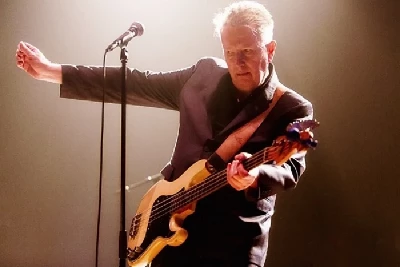In Dreams Begin Responsibilities - #2
by Steve Miles
published: 14 / 2 / 2021

intro
In his new column, European Sun's Steve Miles continues to assess what punk means to him, and in the second part of a two part article examines the latter five out of ten groups that transformed his life.
A regular column by Steve Miles. In the last issue, I began a two-part, ten-song exploration of what punk means to me. Here’s the second five, starting with the man who first tried to write properly about punk, Mark Perry. 1. ‘Alternatives’ – Alternative TV (1978) If anyone invented punk and exemplified punk, it was, of course, Mark Perry, the man who started the first punk fanzine, unwittingly established half of the ‘rules’, then formed a band of his own to prove it could be done. Better still, they then wrote half a dozen of the best examples of melodic punk mixed with painfully honest lyrics that exist, over the course of their first five singles, then turned their music on its head, changed their name and alienated their audience in the truest bloody-minded punk way imaginable. Introduced by some jarringly un-punk mock-symphonic synthesizer from Jools Holland, this track is actually a live recording, edited down (how I’d love to hear the whole thing!) from a part of the set where Mark P genuinely, innocently, and valiantly democratised music. If The Desperate Bicycles and others (ATV key amongst them) signified that it took no special schooling or talent to make music, and if the boundaries between audience and performer were destroyed, then why not let the audience join in? There are no lyrics in this song – just the audience interacting with Mark Perry and each other while the band chugs along with a pre-punk rock riff. It’s the truest, most meaningful and most profound depiction of punk on record. It begins with Perry saying, “This is the bit of the show where we ask members of the audience to come up on stage and say what they want about a particular subject. Each member of the audience – uh, not everybody – anybody that wants to come up, come up now…” For me, as I guess for Mark at the time, that is art and democracy at its very best. But unfortunately, people don’t often live up to the lofty ideals of the dreamers and hopers of this world. While the crowd rowdily heckles and ignores in equal measure, we get a succession of the reasons why punk (and indeed all attempts to make a better world) failed. First, a boy comes up and tries to pick a fight with people. Deep down he wants to encourage open mindedness and direct action, but he can’t get the words out without alienating everyone. The public part then takes a brief step back while Mark Perry, serious to the ethos he’s established, rails against the girls dancing on the stage: he wants opinions and change, not mere entertainment, but the crowd aren’t ready for that responsibility. A girl screams, “‘Defiance”. “E’y’are c’mon,” urges Perry, “you’re getting the chance to use your soapbox. For one time in your life… No, I’m giving the soapbox to you… You don’t wannit…” Another drunken lad comes up and advertises his band’s need for a singer. He’s called Ivor Drumstick. You can’t make it up. The girl screams “Defiance” again. And then a man comes up and talks about skinheads and swears at the crowd, presumably provoking argy-bargy, because the next thing we hear is Mark Perry yelling, “Right, you stupid bastards, off the stage… Right, look, one of you people, one of you people gets the chance to say something, and what happens? There’s a fight. That’s all you can do is fight. Well, it’s not very good… “ And then comes the perfect articulation of the disappointment that has haunted every revolutionary, utopian or progressive in history, made up, on the spot, in response to a brawl on the stage: “I love all you people, but I hate you when you act like stupid idiots, because that’s when they grind you down.” The recording then abruptly edits to a clip of a documentary about a cinema, including a bit of a different recording of the song where Mark is talking about how ‘punk on TV’ is not punk winning at all, because “What you’re getting is diluted, diluted shit.” A girl in the crowd shouts, “We know the problem, what’s the answer”’ which Perry repeats, answering, “This is really depressing because I know (bleeped) answer.” It cuts back then to the original recording, and a new crowd member is expounding the idea to the audience that, “You all wanna change the country, well, if you wanna do something. You don’t sing songs or have fun on stage; you do like the blacks in Africa, right, you go out and start a war.” Perry takes back the mic and tells the band, “Let’s have some chaos, chaos and finish,” and it ends, nearly ten minutes after it began. Twenty-two years later, Perry recorded the song again as ‘Communication Failure’ on the album ‘Apollo’ with new lyrics reflecting on those times, and siding with that last audience collaborator: “We had a chance to change the world/ Well, not the world but our tiny bit/ Instead it was just another flash in the pan/ Communication failure/ In future, if I want to take them on/ I’ll sell my guitar and use the bomb.” 2. ‘Under Clery’s Clock’ - The Radiators (1989). One aspect of punk that is under-recognised is how democratic it was, regionally and emotionally. Most of our culture comes from London or America; Manchester and Liverpool chip in next, and nine times out of ten the successful ones move to London or America once they make it big. Punk wasn’t immune to that hegemony, but there was also a much higher profile of punk from the regions – from the North East, Bristol, Sheffield, Wales, Scotland and Ireland. For me, that was liberating. It’s one thing that sadly didn’t persist and one thing that time has not put right since. We heard different accents in punk records that we never heard in real life, and those accents we heard how different (and sometimes the same) life was in different parts of the UK in a way that no musical or cultural trend has done since. Punk allowed us to share our voices and our views, and learn from each other’s experiences. Perhaps the most successful example of that is ‘Johnny Was’ by Stiff Little Fingers, where the band recognised, the at the heart of a Bob Marley song about a young man’s murder in Jamaica, a depiction of the same violence they saw every day in a British-occupied Ulster and put it to a raging, visceral fusion of punk and reggae in a hugely emotional seven minute journey. From Jamaica via Belfast to my house, the horror of living in a landscape where a “stray bullet” could destroy so many lives became clear; my world was widened, my empathy extended and my sense of brotherhood with people from a long way away who looked and sounded different to me was deepened. Those are all things that make us better and make the world a better place; things that, at the time of writing, seem so desperately needed in our divided world. But it wasn’t just the big, noisy causes like unemployment, racism, war, and religion that punk opened our eyes to, vital as all those were. It was also the small, intimate, personal ways we struggle with our locality, our identity and our emotions. Punk allowed and encouraged honesty and bravery in self-expression: Mark Perry told us that his “love lies limp”, Patrik Fitzgerald and Ian Curtis detailed their struggles with depression and Poly Styrene exposed how her self-image was shaped by consumerism. Most moving of all was ‘Under Clery’s Clock’, the breathtakingly moving sketch of growing up gay in Dublin that Philip Chevron didn’t release until 1989 (still four years before same sex love was decriminalised in Ireland). Like most of the first wave punk bands, The Radiators From Space were an R’n’B band who morphed into punk but retained their pop sensibility so much that they never quite pulled off punk and fell between two stools in their audience. There must have been something in the Celtic water that made the bass melodic, as all the most beautifully lithe bass playing in punk can be found in the Irish and Scottish punk bands: the Radiators’ first album is a great example of this, and the Rezillos’ first album, of course, starts with the best bass intro to an album of all time. ‘Under Clery’s Clock’ is a song of impeccably observed longing and loneliness, performed with heartbreaking candour and simplicity. Queer issues were more openly explored in punk than elsewhere but were still rare, and the sense of frailty and fear in this song captures that reticence and yearning perfectly. Musically, aside from the band’s history and the strong Irish accent of the singer, the song isn’t punk. But punk allowed Chevron to write it and sing it, and for that reason, it’s one of the true classics of punk and as good a song about the interface of the personal and the political as has ever been written. 3. ‘Dancing In My Head’ – The Raincoats (1981) This song is a very different take on that same idea of the social norms that mess with our minds. Women in rock have had to suffer the male gaze for ever and sit on the sidelines being supportive or looking pretty while the men got the glory. But punk opened music to women in a way that was new and significant. It’s a whole story in itself and I can’t begin to do justice to it here. But I’ve included The Raincoats here because while their friends The Slits returned the male gaze with swaggering audacity, The Raincoats turned their backs and walked off somewhere else, as if they didn’t even care what anyone thought. Their music sounds like no-one else either, with the first album speedily deconstructing male musical and lyrical tropes and the second simply inventing new ones. While the Slits’ ‘Cut’ is a masterpiece, and could easily be on this list, the Raincoats legacy is to this day a path that was less travelled. They didn’t make music you could put on in the background, but instead made music that demanded you listened to it, and into which you could fall further, layer after layer, on every listen, as few of the songs had a structure that was typical of a song, and often not even a consistent rhythm, but which all felt as natural as blood. The song’s arrangement is unique, as the opening suggestion of rhythm and melody played on piano and cello disintegrates as they both follow Gina Birch’s beautiful and fragile butterfly-like vocal as it flutters off down a path of its own, before the bass and timpani-led percussion kick in and the song becomes more like what we know a song to be like, only to stumble, pick itself up and melt away again. It’s slightly dub, without being dubby, and slightly world music (a shenhai and a balafon add colour and mood), without even a hint of the cultural appropriation that usually means. “We've got a long, long way to go/ With the physical, with the physical/ With the classes and the colours/ And the sexes and the races/ Got a long, long way to go/ With the spiritual.” Kurt Cobain said of the band that, “Rather than listening to them I feel like I'm listening in on them.’” This was a record that was “woke” forty years before that term existed, in all the best ways possible. And on this song, Birch’s unreservedly passionate vocals are exquisite: neither studied nor sexy nor strident, but captivating and natural. They set the tone for a true expression of the voice of women in music that is, as yet, sadly, still barely heard anywhere. 4.‘Cloud Over Liverpool’ – Teenage Filmstars (1979) A bit of sociological insight mixed in with a little story, accompanied by guitar, bass and drums (and piano and organ here), all recorded with amateurish values. What’s not to like? Punk, to me, was anti-celebrity and pro- the common person. Even though from the very beginning, many of the major players sought to glamourise their appearance and take on star personas, I always preferred the bands that turned up on stage wearing the clothes they had been wearing all day, wrote about chip shops and buses, and didn’t pursue a career in the Entertainment Industry. The word ‘amateur’ means lover and I liked the music best that sounded like it was made by people for the love not the money. Often these sorts of songs owed as much to kitchen-sink/angry young man British movies and Seventies British sitcoms as real life, but that didn’t diminish their seaside postcard appeal. Life is, of course, complicated and I believe Ed Ball went on to make a lot of money in the Entertainment Industry, showing either an eternal ironic streak or an eternal opportunistic streak, in writing songs in all manner of genres, segueing from punk into mod before claiming Manchester as his own during that horrible dance era, and onwards. On this song, he might have been being both cynical and opportunistic, as he certainly wasn’t from Liverpool either, but it completely gets to me anyway. He writes about a young man’s miserably mundane weekend as an outsider, pretending to be an insider, and that gives it a narrative perspective that most first-person music lacks. The home-made/slice of life feel of the lyrics is perfectly captured in the music – or is it soundtrack? - as almost all the instruments go out of time in places, there are crowd noises in the football section, faked female dialogue, and a thunderstorm recording before the unexpected and mournful refrain at the end. Oh, and a bit of lead whistling near the beginning. The great sociological story songs of the era that mean a lot to me were nearly all written by people who weren’t really punk at all but simply rode on that wave; like film-makers they looked out at the world around them and sought to capture it in little stories. For this ‘slot’ I could just as well have picked The Members’ ‘Solitary Confinement’, The Leyton Buzzards’ ‘Saturday Night (Beneath The Plastic Palm Trees)’, or Jilted John’s ‘The Birthday Kiss’, all of which are just as funny and perceptive. Or I could have picked any one of many songs by the TV Personalities (some of whom I think play on this record anyway), as Ed Ball’s mate Dan Treacy mastered the genre better than anyone and released four great albums before he sadly lost his way. But I picked this song because the combination of the desperate last line (“So I walked home feeling really lonely”) followed by the out of time piano and the half-football crowd, half -drunken singalong chorus at the end, always moves me and makes me smile at the same time. 5. ‘The Building’ – The Mekons (1982) I’ve chosen to end my ten-song exploration of the meaning of punk with a recording which, to me, is as punk as the punkest punk in punk land. Yes, the Mekons’ ‘Where Were You?’ is a glorious classic slice of passionate pop, up there with all the very best punk singles, and indeed songs of all time, but it’s not that one. Nor is it the Mekons’ marvellous first EP on Fast Records which perfectly captures up the DIY ethos discussed in the last article so well. No, this is from later, after that first energetic explosion of punk had died down and any ‘punk’ band that still made the charts did so by making music with no trace of punk left in it. At some time around this period, after the Mekons’ punk-pop debut and post-punk second albums, and before their alt-country rebranding, Mark White of The Mekons walked across a studio floor (you can hear his feet in the background) and half- shouted, half-sung a lyric lacking any rhymes, in his normal everyday voice into a microphone. That plaintive voice was captured not only without any artificial audio-technology enhancement but also without any musical backing, and comes entirely without context or explanation. But it does come bursting with emotion, integrity and energy, the singer getting all the more worked up as he goes on over the heartfelt but not completely transparent lyric, his enthusiasm and exhaustion causing him to forget and repeat words, stumbling with his slightly inexplicable passion. And then, by the sound of the footsteps on the vinyl, he walks away again… And that’s absolutely as punk as it ever gets. Next time, in 'In Dreams Begin Responsibilities', we will rail against one of the music’s greatest injustices. In the meantime, please feel free to contact me with comments and complaints at europeansunmusic@gmail.com or hear my own music at https://www.facebook.com/europeansunband or https://www.facebook.com/theshortstoriesmusic
Play in YouTube:-
Picture Gallery:-
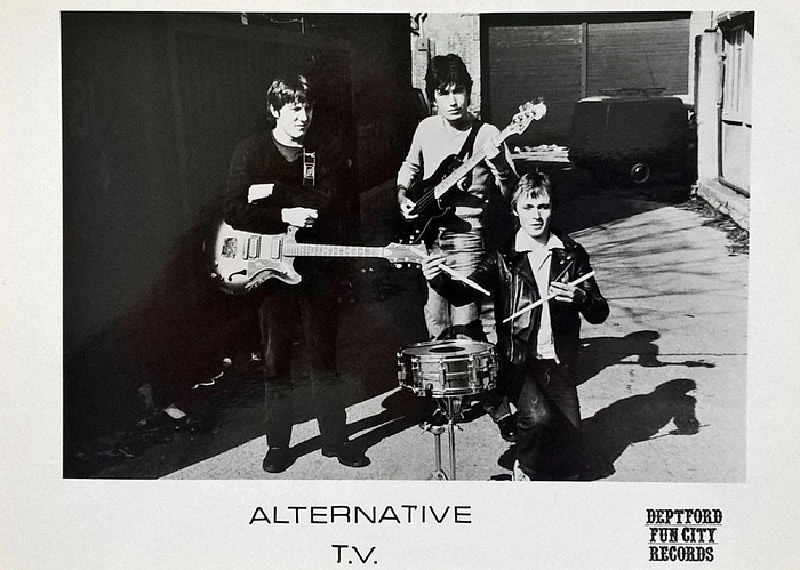
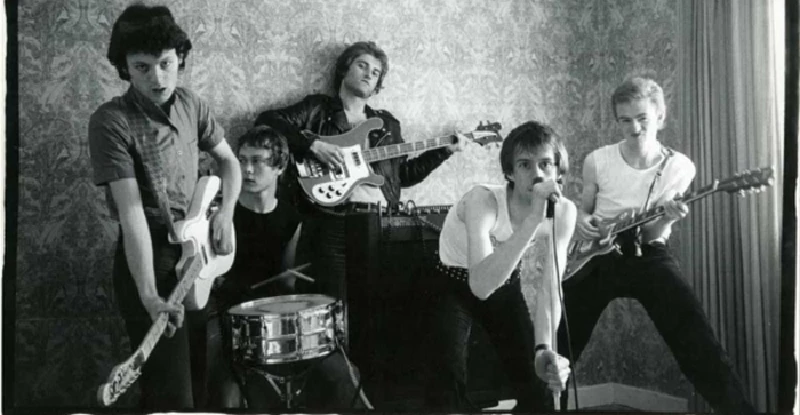
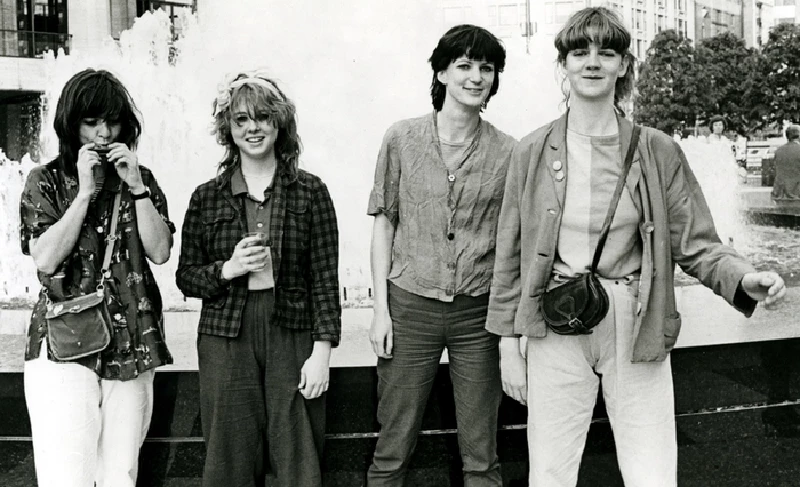
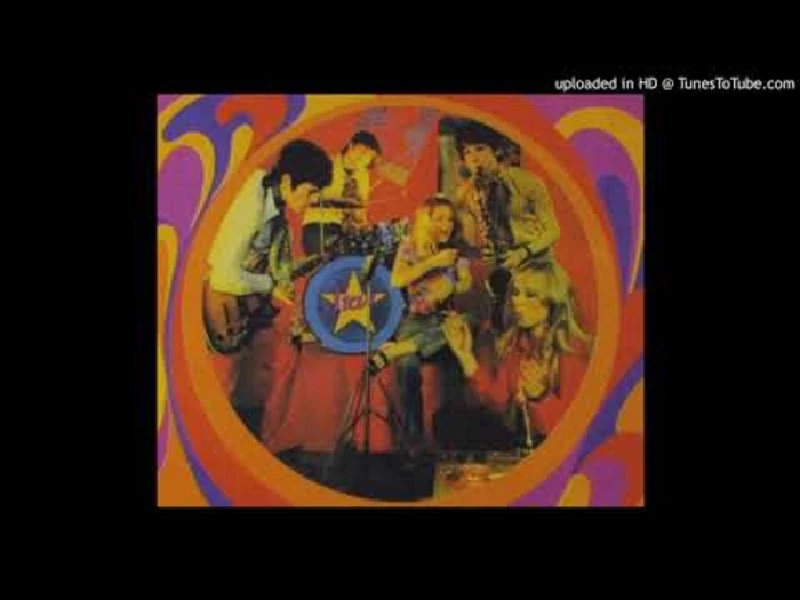

most viewed articles
current edition
Carl Ewens - David Bowie 1964 to 1982 On Track: Every Album, Every SongArmory Show - Interview with Richard Jobson
Colin Blunstone - Thalia Hall, Chicago, 16/7/2025
Visor Fest - Valencia, Spain, 26/9/2025...27/9/2025
Bathers - Photoscapes 1
John McKay - Interview
Loft - Interview
Billie Eilish - O2 Arena, London, 10/7/2025
Robert Forster - Interview
Sir Tim Rice - Interview
previous editions
Heavenly - P.U.N.K. Girl EPManic Street Preachers - (Gig of a Lifetime) Millennium Stadium, Cardiff, December 1999
Beautiful South - Ten Songs That Made Me Love...
Oasis - Oasis, Earl's Court, London, 1995
Pixies - Ten Songs That Made Me Love...
Boomtown Rats - Ten Songs That Made Me Love....
Trudie Myerscough-Harris - Interview
Prolapse - Interview
Simon Heavisides - Destiny Stopped Screaming: The Life and Times of Adrian Borland
Peter Perrett - In Dreams Begin Responsibilities Interview Part One
most viewed reviews
current edition
Amy Macdonald - Is This What You've Been Waiting For?Sick Man of Europe - The Sick Man of Europe
Lucy Spraggan - Other Sides of the Moon
Davey Woodward - Mumbo in the Jumbo
Phew, Erika Kobayashi,, Dieter Moebius - Radium Girls
Alice Cooper - The Revenge of Alice Cooper
Bush - I Beat Loneliness
Suzanne Vega - Flying With Angels
Blueboy - 2
Cynthia Erivo - I Forgive You
Pennyblackmusic Regular Contributors
Adrian Janes
Amanda J. Window
Andrew Twambley
Anthony Dhanendran
Benjamin Howarth
Cila Warncke
Daniel Cressey
Darren Aston
Dastardly
Dave Goodwin
Denzil Watson
Dominic B. Simpson
Eoghan Lyng
Fiona Hutchings
Harry Sherriff
Helen Tipping
Jamie Rowland
John Clarkson
Julie Cruickshank
Kimberly Bright
Lisa Torem
Maarten Schiethart
